So you want to be an ally–yay! But what exactly does that mean?
Being an ally was defined here by Clay Rivers two weeks ago as “the long-term, perhaps even lifelong, commitment to the process of learning, growing, and the advancement of equality.” This is used most often in conjunction with the support of marginalized groups of people, such as Black, Indigenous, and People of Color (BIPOC), as we focus on here at Our Human Family, LGBTQ people, or people living with disabilities. For example, being an ally might mean supporting Black people on a systemic level; attending a protest; ensuring their safety on a personal level; or speaking out on their behalf in white settings.
At its core though, it’s really about being a better person, a better way of being. Being an ally shouldn’t be a badge someone wears, like liberal street cred. It’s fundamentally a way of seeing the world in which you understand that every person is deserving of the same human rights and a chance to succeed in life.
It is noteworthy to remember that the majority in any population is the only group that has the power to create a minority, so white people created race and racism; straight people marginalized LGBTQ people; and so on. And because white (straight, etc.) people are still the majority and have the most power in our society, the onus is on us to fix these problems. Black people, for example, are thirteen percent of the population in America and the average Black family has a tenth of the financial resources compared to white families. In other words, they can’t (and shouldn’t have to!) eradicate racism.
Put more bluntly, I’m not suggesting that we white folks should necessarily walk around feeling guilty, but racism is our problem and we need to fix it.
But what does that entail?
1. Read up, white people!
First and foremost, we need to do a whole lot of reading. We white folks not only have never been and will never be Black, but the vast majority of us hardly even know any Black people thanks to the segregation that continues across all parts of our society. So while we have some idea of the injustices committed in the name of racism, we do not understand the depth and breadth, we have a variety of misconceptions, we have only the most vague, sugar-coated idea of America’s history with racism, and we have little understanding of what it’s like to be Black in America.
Fortunately, tons and tons of Black people have documented the situation, along with their feelings and insights. OHF offers Fieldnotes on Allyshipplus numerous articles on race and racism, but there is also a wide variety of other excellent authors of color on Medium, as well as James Baldwin, Toni Morrison, bell hooks, Audre Lord, Ta-Nehisi Coates, and many others at your local library.
It’s important to note that this is step number one, before anything else, just as you’d ideally do your research before interviewing for a job—and you can accomplish it by reading, watching movies, listening to podcasts, etc., but not by conversing as yet. Black people are both exhausted and emotionally drained from explaining these things to clueless white folks over and over again (see Terra Kestrel’s “When You Walk into that Valley”), especially since too many of us have then argued with Black people’s own life experiences or not followed up with the requisite support.
2. Realize that all of us white folks are racist
Given the culture we live in, every single one of us has a lot of unconscious and subconscious assumptions about people based on their race. That’s okay, as long as we’re working to learn more and be open-minded about changing our opinions. But we’re so conditioned to see racism as one of the worst possible traits, that we frequently can’t admit our own biases even to ourselves. And if we’re in denial about it, it’s hard to do the things we need to do to be a better person.
Also, be aware of the differences in so-called “racism” between a white person and a person of color. White people form their opinions based primarily on the media and what other white people say since we have so little direct exposure. Black people make generalizations about whiteness and white people because they’re surrounded by us and their lives often depend on getting it right! There’s also an element of power inherent in racism that always benefits white people and never, ever Black people.
In other words, white people maintain their power through their racism, whether intentional or not, whereas Black people’s assumptions simply keep them alive. To say to Black people, “But you’re racist too,” is an unfair comparison.
3. Question everything you “know”
Americans have created a lot of myths around the history of BIPOC that extend all the way up to today. And while we don’t tend to think of ourselves in terms of “whiteness,” we’ve created myths around that, as well. So, for example, many of us think we’re “self-made,” while ignoring the better (yes, whiter) schools, the tutor many parents provided, the ease with which we got into mom’s alma mater, the job we got via Uncle Frank’s connections, the money we inherited.
Conversely, we wonder why Black people can’t “pull themselves up by their bootstraps” without thinking about how our justice system has turned so many Black families into one-parent households; how lower pay for the same jobs may mean that the other parent has to work two jobs; that there is no inheritance because any time a Black family accumulated wealth they were run out of town; and so on.
The simple fact is that there are many reasons why the truth has been embellished when it comes to race—just as we’re seeing play out in Florida right now, because “they don’t want the white children to feel bad.” It is essentially what is meant by “history is written by the victors”—we know only what the ruling majority wishes to tell us.
Tied into this is our white privilege. Hopefully, if you wish to be an ally, you understand the term; but to be clear, it has nothing to do with “being privileged” like the well-to-do. Rather, it’s simply that if a Black person and a white person go through the same situation (good, bad, or even horrible), the white person will fare better (or less worse off) than the Black person simply because of their skin color. So even mundane things like walking through a store can be tinged with racism because the Black person is often followed with suspicion.
4. Get to know some Black people (no, not just that one “Black friend”)
Now that you have some idea what Black folks and other people of color are up against, it’s time to get to know a few of them! Despite segregation, we do in fact encounter Black folks in many settings. Just be friendly. Say hi! Many white people, if they’re being honest, are a little uncomfortable talking to Black people at first. And some Black folks are rather iffy about us white folks; chances are they’ve been burned a few times. But overall, I can assure you that they’re among the nicest people I know.
Note: A lot of white people have “that one Black friend,” or even a couple Black friends who hang with their group. If y’all have had deep discussions about racism, that’s awesome. If someone in your group says something like, “I’m colorblind!” or “All lives matter!”, none of the white folks corrects them, and your Black friends just smile and nod, they probably don’t (and shouldn’t) trust you with their deepest concerns.
@Bloom, a writer on Medium, recently commented on a post with an excellent summary of the situation:
“I recall a group chat dispute I had with several white women about their careless use of language known for disparaging black people. I explained the offense and what I got was several dismissive and further offensive retorts from a few of them. What was striking to me was how silent the other ten or so white women were. I'd received a couple of private messages where the women were telling me I was right and they hoped the women were self-reflecting but no open sign of support.
“Finally, one of the silent partners said she wanted to help but didn't know how. She knew how because I had seen her time and again jump in to advocate for some of the other white women, taking swift action, but with me, she just couldn't figure out how to do it. I knew what that meant. It meant my relationship with her wasn't worth sacrificing the ties she had with the others. That's why they were all silent. It was a day of reckoning for me. I haven't looked back.”
Having a Black acquaintance that mostly serves to validate one’s liberal leanings is insufficient. Take some time to get to know them one-on-one as a true friend, and let them know you’re trying to be better. Check on them after a racial incident like the recent shooting in Jacksonville, Florida, and let them know you care.
Why does all this matter? You can’t really be an ally to an abstract group; you won’t be effective unless you see them as the full human beings they are.
5. Listen, listen, listen
We white folks have a habit of wanting to be authoritative when we speak, and listening is a very underrated skill in our society. Listening—truly listening—is a great talent to develop with anyone, but especially your Black friends. Most Black people have spent their entire lives having to say what the white person wants to hear; it’s a luxury to have someone you can trust to empathize and understand your perspective.
Instead of thinking about how you’re going to respond, just listen. Learn what matters, and how it makes them feel, and think how it might make you feel. Too often the white response is that Black people are oversensitive; they make everything about race; they’re too angry. I’ve now done enough listening to guarantee you that they have very valid reasons for how they feel.
Similarly, you should never be the voice of Black people while they’re present! America has spent centuries silencing them, and they certainly don’t need allies talking over them.
6. Don’t center yourself
Understand that you will never be the biggest expert on racism when Black folks are in the room. Nor will your feelings matter as much when it comes to anything race-related. Don’t ever respond with, “But I didn’t do it!” “Not all white people!” or “I feel just as bad!” Just NO. You should never, ever, ever be the center of any situation or discussion about racism. You are there to support, not be supported.
This also extends to virtue signaling. If you’re a warm, caring ally and you express genuine support or empathy, that’s super. If you’re really just trying to say “Look at me, I’m a warm, caring ally!”, again, no. And Black people have heard this stuff a billion times; they know the difference.
7. Volunteer, Protest, Be There
So now you’re at the point where you’ve listened, you’ve learned, you’re feeling pretty knowledgeable, the injustice has you royally pissed, and you want to do something—but what?! (This is where a lot of us white folks actually attempt to start their allyship efforts, and while it’s understandable to want to jump in feet first, it’s good to have your homework done first.)
But what exactly do you do now? The answer is, whatever you’d do if anyone else you cared about was being mistreated! If someone says or does something racist in front of you, speak up. Write an article! Respond to racist articles! Volunteer your time to the cause! Write to your congressmen! Go to a school board meeting! Donate money if you have a bit to spare! Attend rallies or protests! (Despite what the media would have you believe, the vast majority of these events are peaceful, productive, and filled with camaraderie.)
Do you have to do all of them to be an ally? Of course not. But if you’d do it for your white friends, then you need to do it for your Black friends. And you definitely need to do something.
In short, we can’t just think happy thoughts about our Black friends—we have to show up. As @Bloom summarized her above comments, “Allies are only allies when they can look at the problem, stand shoulder to shoulder, and choose the side of fix over their comfort. Otherwise, allyship is just trending and fluffy.” Trending and fluffy . . . excellent description. Don’t be an ally because you ought to. Be an ally because the injustice is burning a hole right through you.
8. Speak up in white places
If you have done (and continue to do) the previous steps, chances are you know more about racism than any other white person in the room—because most of us white people think we know all about racism, but almost none of us do. So if you’re in a place where Black and brown folks have no representation and somebody says or does something racist, that is the time for you to be their voice. Racists expect to get away with saying racist things in white gatherings, and that’s part of how racism spreads; silence suggests that it’s acceptable. Let them know that it’s not!
Also, remember that honey generally gets you further than vinegar. If you’re like me, hearing someone say some nasty, racist thing makes me spitting angry. But nobody ever affected change by ripping into someone. So start by kindly, gently explaining to them why they are wrong. You might not change their minds right then and there, but you’ve planted the seeds. Maybe you can be an anti-racist, correct Uncle Ron, and not ruin Thanksgiving dinner.
Aaaand, sometimes there’s no honey to be had. If so, rip into Uncle Ron. 😆
9. Get used to being uncomfortable, and learn from your mistakes
I can assure you that Uncle Ron won’t be thrilled when you correct him—and the rest of the family might not be, either. We are, as a society, not big on rocking the boat. Unfortunately, not rocking the boat means perpetuating racism. And that’s why it’s infested everything in America for the last four hundred years. So be nice to Uncle Ron, but don’t let him off the hook, even if it means that someone won’t be happy. If they are worth loving and truly love you, they’ll move past it and probably even respect you more in the long run.
The other thing that will happen is that you’ll still carry some unconscious vestiges of racism and probably even aggravate some of your Black friends and acquaintances on occasion. Again, it’s okay to not know things! You have never been, and will never be a Black, Indigenous, or Person of Color. You will make mistakes. I’ve been working on being a better person for my BIPOC friends for decades, and I still make mistakes. As one Black friend has said on several occasions, “Sherry, I know your heart . . . ” and I know what’s coming. (Clay is more direct: “Sherry, that’s racist.”) If you’re doing the work though, they will forgive you, and you will have learned another piece of the puzzle.
10. Being a better person is a lifetime commitment
I have a very good friend who is fiercely anti-racist, anti-homophobia, anti-discrimination, anti-hate. She is also a devout Christian in the truest sense of the word. Although she is to all outward appearances a calm, rather genteel sixty-year-old white woman doing all the everyday things people do, there is a fiery passion just below the surface ready to always do what’s right. I don’t know that she’d even describe herself as “anti-racist” or “anti-homophobia”—she is simply a really good person doing what she can for her fellow human beings and some of them happen to be suffering the consequences of being Black or brown or gay in our society.
My friend is doing everything for the right reasons, and she will never stop doing them because they’re a part of who she is. I don’t claim to be as good as her, but I aspire. None of us is ever going to be perfect and we will sometimes backslide, but we need to keep trying. Racism won’t resolve itself without good white people doing the work.
Love one another.
Sherry Kappel
OHF Weekly Managing Editor


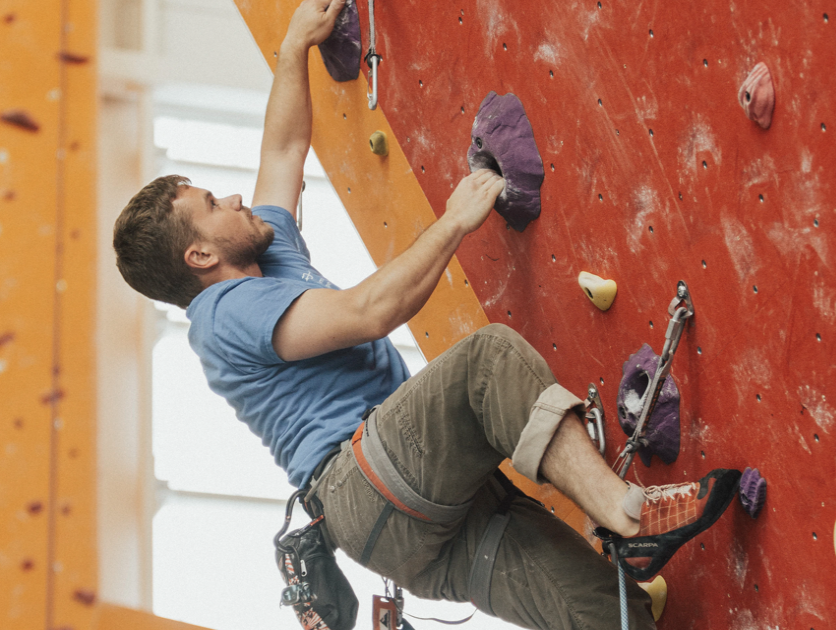


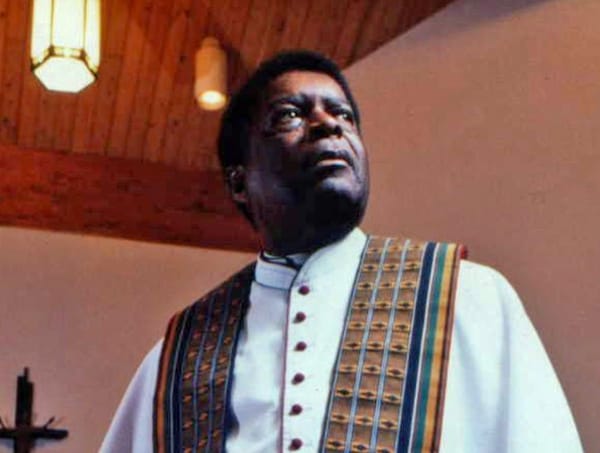
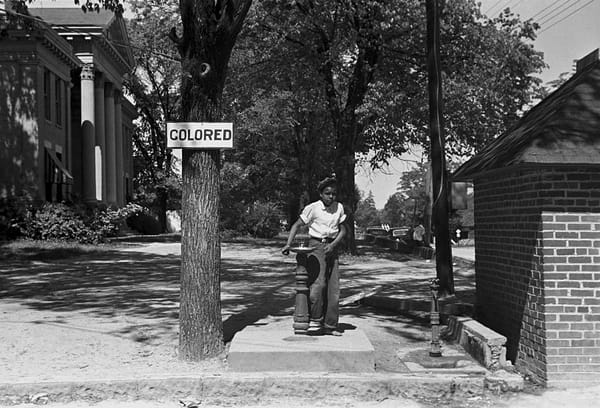

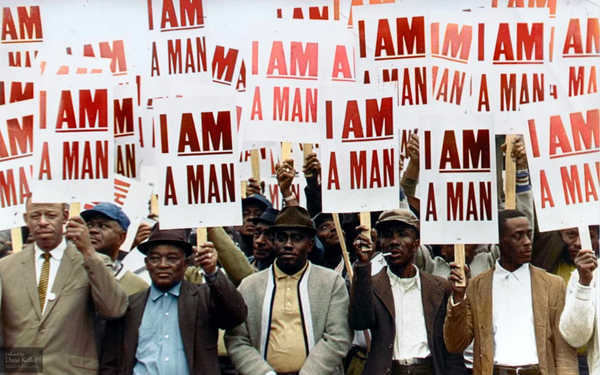

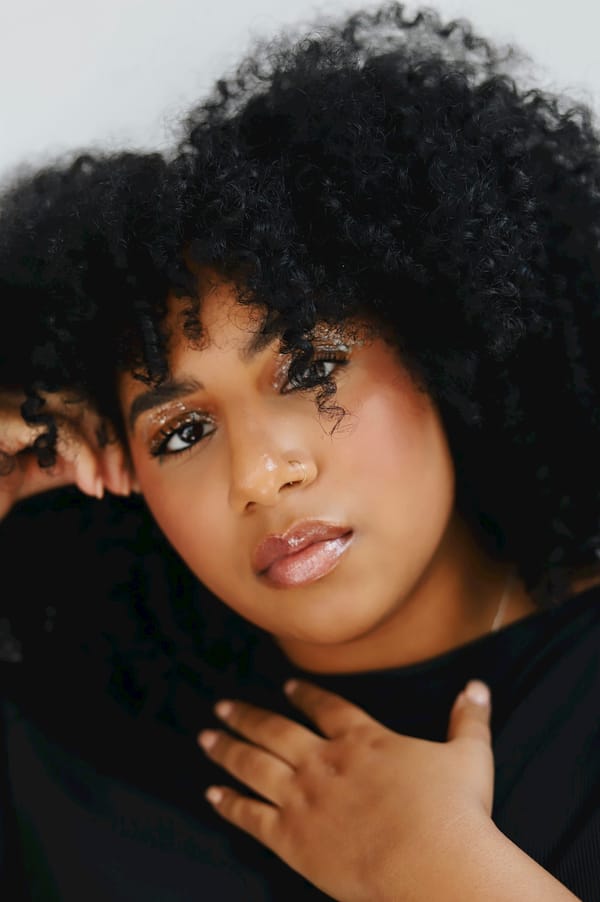
Member discussion